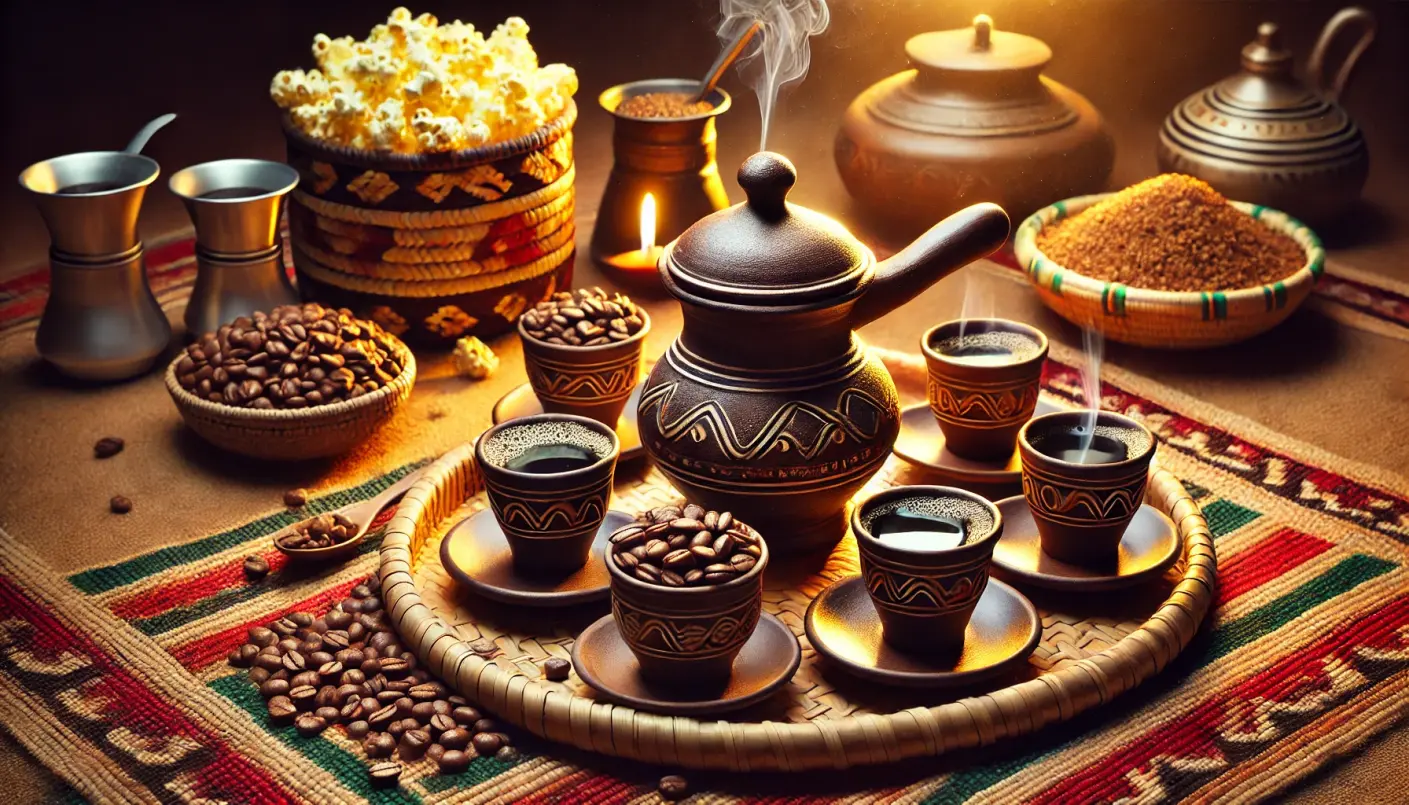የኢትዮጵያ ቡና ስነ-ስርዓት | A Beginner’s Guide to Ethiopian Coffee Ceremonies

Ethiopia, the birthplace of coffee, has a deep-rooted tradition of coffee ceremonies that go beyond just brewing a cup of coffee. The Ethiopian coffee ceremony (ቡና ስነ-ስርዓት) is a social and cultural experience, bringing people together to share stories, laughter, and the rich aroma of freshly roasted beans.
The Meaning Behind the Coffee Ceremony
More than just a drink, coffee in Ethiopia symbolizes hospitality, respect, and community bonding. A full ceremony can last for hours and is often performed when welcoming guests, during celebrations, or for everyday social interactions.
Steps of the Ethiopian Coffee Ceremony:
- Washing the Beans– Green coffee beans are washed and cleaned before roasting.
- Roasting the Coffee– The beans are roasted over an open flame until dark and aromatic, filling the air with a rich scent.
- Grinding the Beans– The roasted beans are traditionally ground using a mortar and pestle.
- Brewing in a Jebena (ጀበና)– The ground coffee is boiled in a traditional Ethiopian clay pot called a Jebena.
- Serving the Coffee– The coffee is poured into small cups without filtering, creating a strong and authentic flavor.
The Three Rounds of Coffee:
- Abol (አቦል)– The first, strongest cup, rich in flavor and caffeine.
- Tona (ቶና)– The second round, slightly milder but still flavorful.
- Baraka (ባረካ)– The final round, symbolizing blessings and social connection.
How to Enjoy an Ethiopian Coffee Ceremony at Home
- Use high-quality Ethiopian coffee beans for authenticity.
- Roast the beans yourself to experience the full aroma.
- Brew coffee slowly in a Jebena to preserve its richness.
- Enjoy with popcorn, traditional Ethiopian bread, or roasted barley.
The Ethiopian coffee ceremony is more than just coffee—it’s an experience of culture, tradition, and hospitality. Try hosting one at home and immerse yourself in the true essence of Ethiopian coffee culture!















